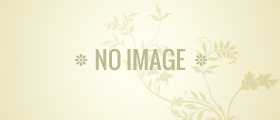Three-month-old Dashiell Lossner gets a baby massage from therapist Amber Reinhart on Monday afternoon.
It’s common knowledge that one of the best ways to communicate with your baby is through touch. But an ever-growing body of research suggests that baby massage does more than help infants feel relaxed, secure and safe.
Massage has also been proven to aid them physiologically, psychologically and developmentally.“We’re finding that massaged babies are more mature, more vocal and fall asleep more quickly,” said Ann Erdmann, director of the Women and Infants Care Unit at Sierra Nevada Memorial Hospital. “Among our postpartum patients, massage is helpful to both the mother and the baby. We definitely talk about massage with new moms — we think it’s important.”In a 2001 study at the University of Miami’s Touch Research Institute, one group of infants and toddlers with sleep problems received daily 15-minute massages by their parents for one month at bedtime. Another group were read bedtime stories. By the end of the study, the “massaged” group consistently went to sleep sooner and — during waking hours — was more alert and active.
In a second study published by The Journal of Perinatal Education, massaged preterm infants gained 47 percent more weight than their counterparts and stayed active and alert longer when awake. They also performed better on the Brazelton scale, which measures a baby’s strengths and ability to adapt, and were hospitalized six days fewer on average.
In a related study, massaged babies exposed to cocaine showed “reduced stress” and depressed mothers who massaged their babies had anxiety and stress levels drop.
But you don’t have to tell that to Wendy Paye, RN and health educator at the Western Sierra Medical Clinic’s Maternity Clinic in Grass Valley.
“Infant massage is totally helpful,” she said. “It’s directly linked to brain development — brain cell growth — and bonding. It stimulates a baby’s sense of touch and really helps with postpartum depression.”
Massage can help with digestive discomfort and teething, said Amber Reinhart — who has taught infant massage classes in Nevada County since 2000 — as the practice is known to release endorphins and oxytocin, which serve as natural pain relievers.
“It strengthens the digestive and immune systems and increases circulation,” she said. “But most importantly it’s a way to communicate nonverbally with your baby, a way to listen to them and tune into their signals.”
According to The National Institutes of Health, “some studies have also shown length and head circumference growth and bone mineral density increases associated with massage therapy.”
A baby is likely to be most receptive to a massage when he is alert, yet quiet — not while he’s sleepy or full. Many parents use a blanket or towel and sit on the floor, cradling the baby’s head on the parent’s feet.
Begin with a gentle stroke from head to toe. If he cries, or appears irritated, move to another body part or simply stop for the day. Otherwise, begin gently massaging him, section by section. Those who choose to use massage oil should test a small spot on the baby’s skin and wait a day or two to ensure there isn’t any irritation.
Paye, who has worked with many single, young mothers over the years, said she can easily identify those at risk for postpartum depression. Many are single with no partner or family nearby. Infant massage, she said, has helped them work through their sadness.
“It’s something constructive and concrete they can to for their baby,” she said. “They know it will help and it’s a way to feel like they’re pouring out their love.”
Information found on The Union

